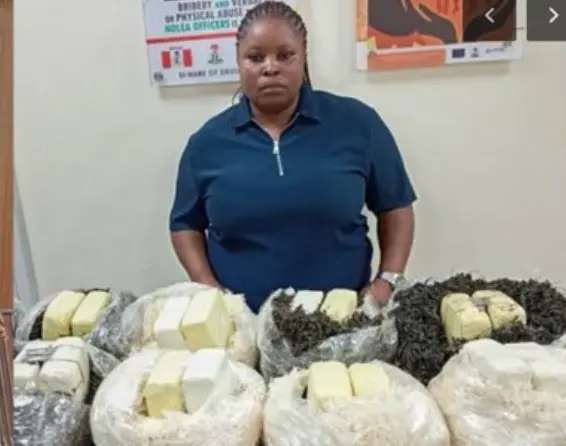
The United States (U.S.) has said that full implementation of the planned National Quality Assurances Programme Guidelines will eliminate fake and substandard drugs and food products in Nigeria.
The United States Pharmacopeia (USP) and the United States Agency for International Development (USAID) at a two-day workshop in Lagos to review the draft copy of a National Quality Assurances Programme Guidelines said the project will ensure safety in medicines and other health products and the policy is expected to reduce adulterated drugs in Nigeria to the barest minimum.
The workshop, which took place at Dover Hotels Lekki, Lagos State, was attended by Directors of Pharmaceuticals Services (DPS) from every state in Nigeria, and was to reach a consensus on how the guideline will help to implement the draft.
The event was tagged “Agenda on Finalization of National Quality Assurances Program Guidelines Development workshop.”
The programme is a Federal Ministry Health (FMoH) project sponsored by USAID-funded USP.
The FMoH pulled the necessary experts to make the draft. The policy, which started two years ago has been finalized and approved by the National Health Council (NHC).
The two-day event reviewed the policy, which have already been drafted, to make sure all the aspect of safety precautions from manufacturers down to the final consumers are met.
Chief of Party, Promoting the Quality of Medicines Program (PQM) of the USP, Dr. Chimezie Anyakora, said: “We have been able to support good policies in Nigeria. We work with Federal Ministry of Health (FMoH) to make this policy. We also work with manufacturers, we go the companies we see the gaps and we work them through until they get to that level required.”
Anyakora added, “Through the work we do, a company in this Nigeria is supplying medicines to other African countries through the United Nations Children Fund (UNICEF). We want to change the perception about quality of medicines in Nigeria. We want to work with companies that show interest, to build them in capacity and make them stronger beyond the local level.
“We also work with the National Agency for Food Drug Administration and Control (NAFDAC) in quality assurance laboratory, we also work with NIPRD to make sure the country is strong enough in quality assurance infrastructure .We also work with the academia to help restructure the curriculum of mass training in Nigeria and make it strong in terms of quality assurance part of it. In this case Nigeria, will not only be export expertise but will have experienced graduates that will go anywhere in the world and play a very significant role.”
The consultant pharmaceutical chemist continued: “This policy which was funded by the USAID. We thank them for that, but Nigerians designed it with the help of FMoH, NAFDAC and many other academia, manufactures but USAID led it technically.”
“On the possible result of the policy, Anyakora said the policy would eliminate fake drugs to its barest minimum; it will also reduce fake products through storage. Other countries are trying to copy this policy from Nigeria. It is the first in African and we hope when implemented, Nigeria will make very good use of it and the impact will be shown. Quality do not only ensure fake products, it also involve how it is been dispensed. This policy has everything you can think of concerning medicines and health products.”
Facilitator of the workshop and consultant with National Institute of Pharmaceutical Research and Development (NIPRD), Prof. Oby Obodozie, said: “We are here to get a national consensus, a die in into the national policy of quality assurance of medicines and other health products. We want all the state stakeholders especially the pharmaceuticals to look at it and make their input into the draft.”
She added: “This draft is to ensure that the quality of every medicine and health product that is coming into the country or that is in use in Nigeria is of good quality, and is maintained from beginning throughout the supply chain down to the user. So, this draft is for the states to have a vie in so that we can accommodate what will be challenges to this document, as experience from the state would make it easier to implement. This work will not limit the work of NAFDAC. It will help the work they do because NAFDAC is an integral part of developing this guideline.”
Obodozie further stated: “We are developing the guidelines that will make it implementable. For example the policy will now take care of storage when products are under transportation and distribution because NAFDAC do not operate at that level, but the quality of such products are still at stake at these stages. We are here to enumerate processes, on what should be done to ensure quality even at such stages. After this stage the documents will be disseminated to sates and we will teach the states how to use the guidelines. Failure to meet up with the guidelines by the manufactures or anybody involved will attract penalty backed by law.
“However, if you begin to have high prevalence of sub standard or falsified drugs in your state you have to sit up and do what others are doing. We want Nigerians to know that every medicine that is in this country no matter the stage the quality is maintained from the manufacturer down to the end user.”
National Supply Chain Management Programme, Mr. Linus Odoemena, admitted that the work they do did not meet the desired result because the steps taken do not follow quality process. He believed that the policy will rescue the situation and the issue of fake and adulterated drugs will be a thing of the past in Nigeria.
DPS from Jigiwa state, Ali Garuba Dandidi, who expressed his joy for participating in the workshop, said: “It is a wonderful policy. It is a well cut out document that incorporated all the process that happen in the pharmaceutical sector in Nigeria .It talks about the manufacturing process, the importation process, the personnel involved, the buildings involved, in fact it talks about everything right from the point of manufacture to the end user.
“It also elaborates how medicines and health related products can be handled effectively for quality assurance throughout the system. It tells of everything involved. It is a plus for the country as a whole. As people we are meant to make sure that quality of products used to treat, prevent and diagnose diseases is assured, and of right quality at every point in time.”






















